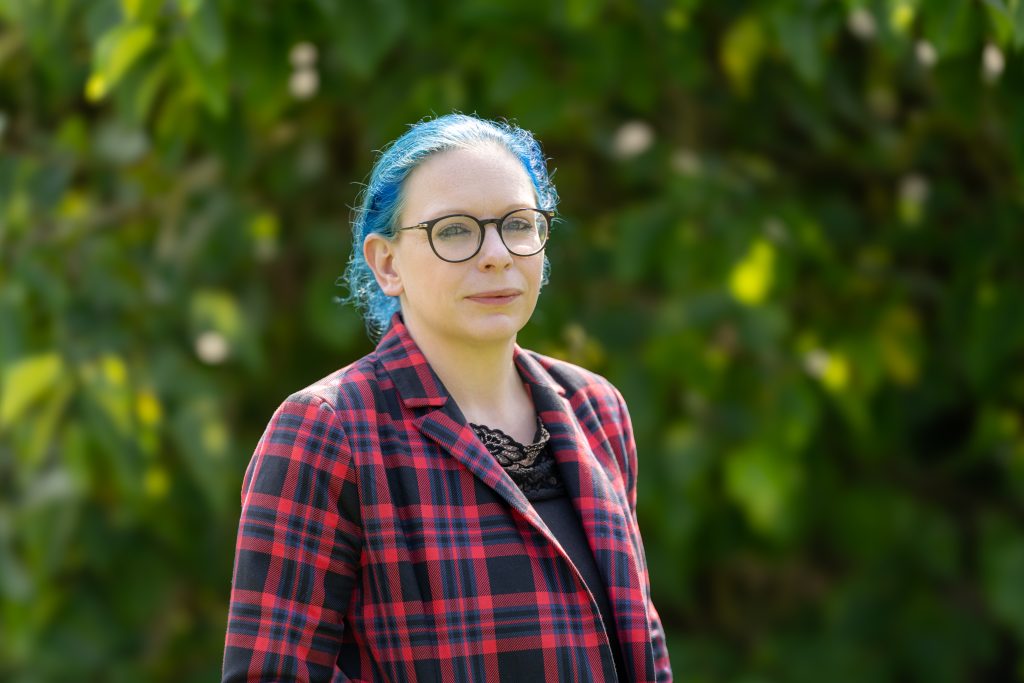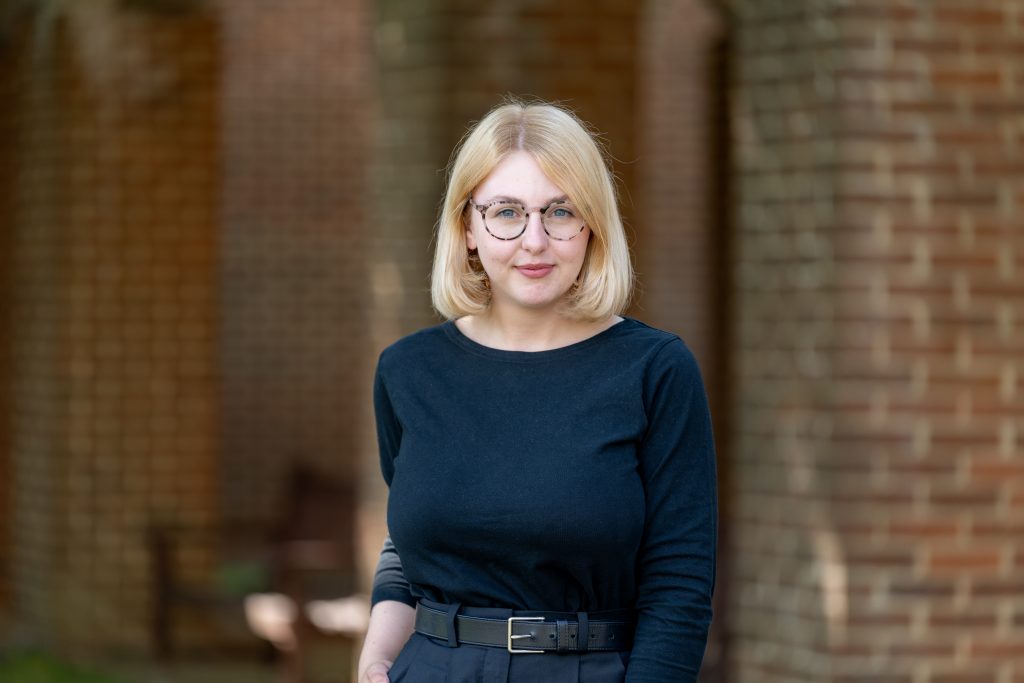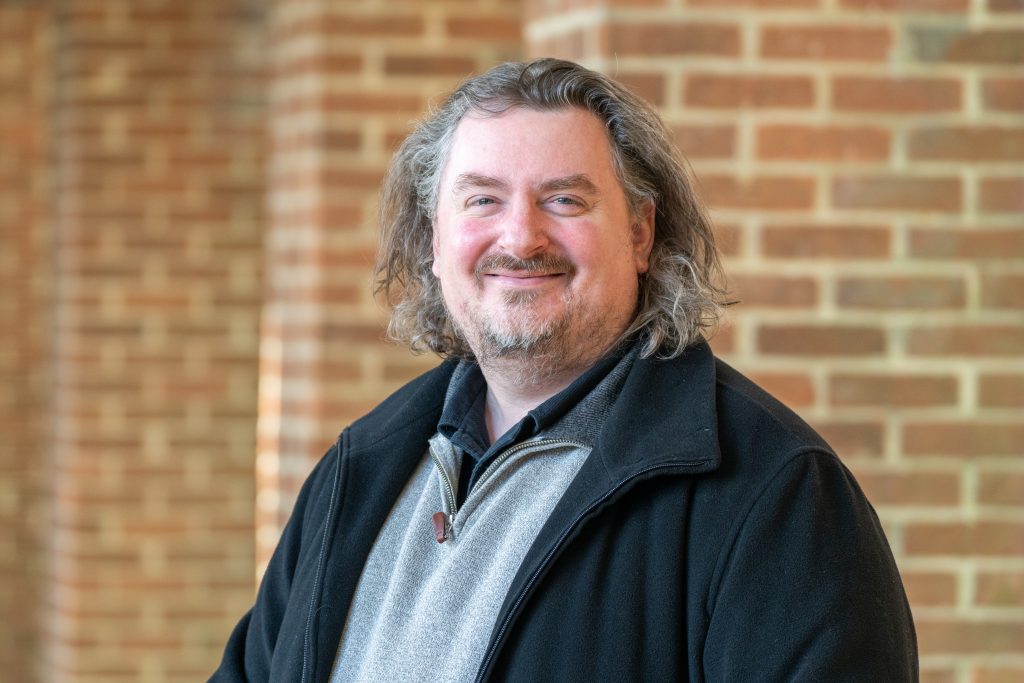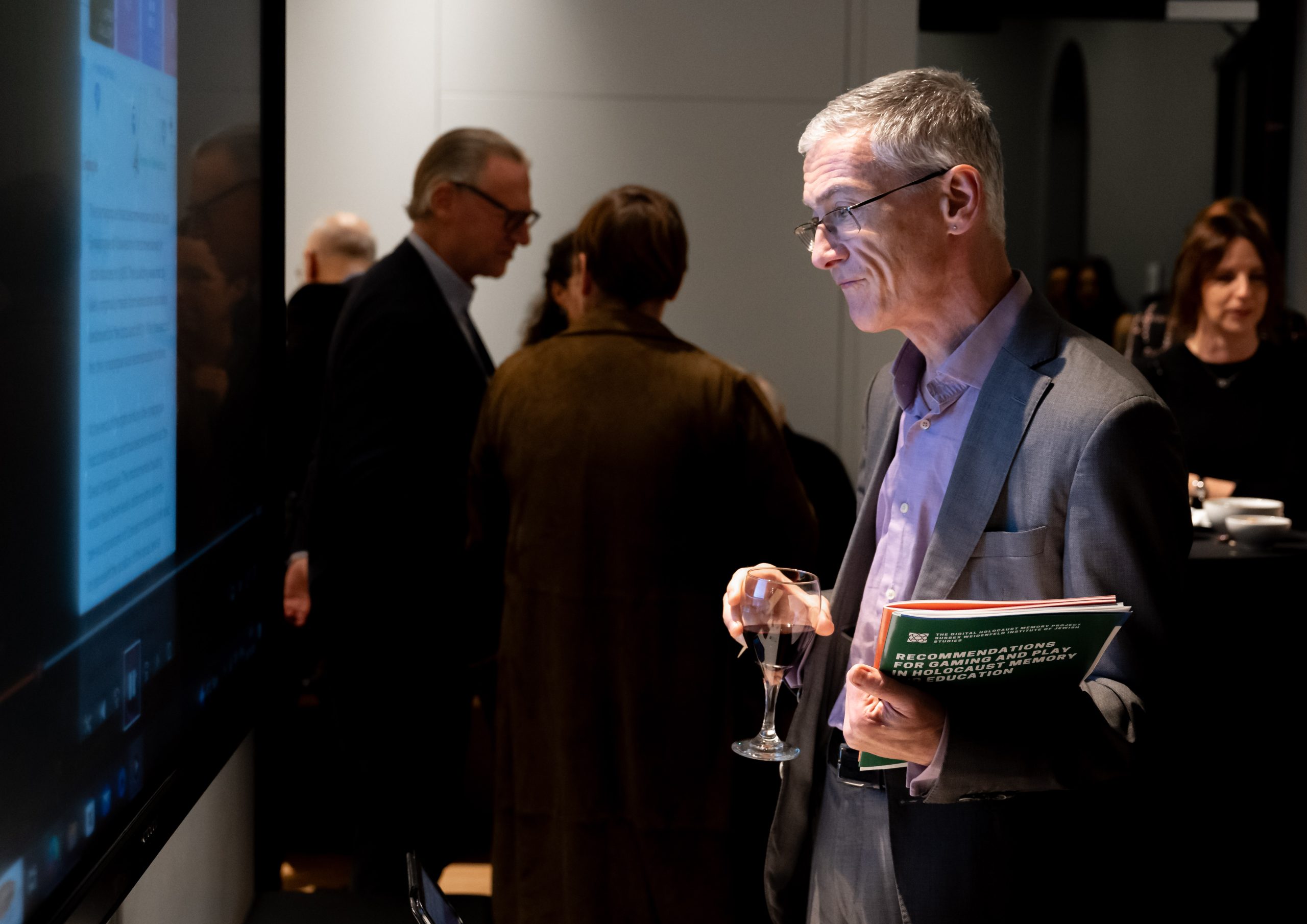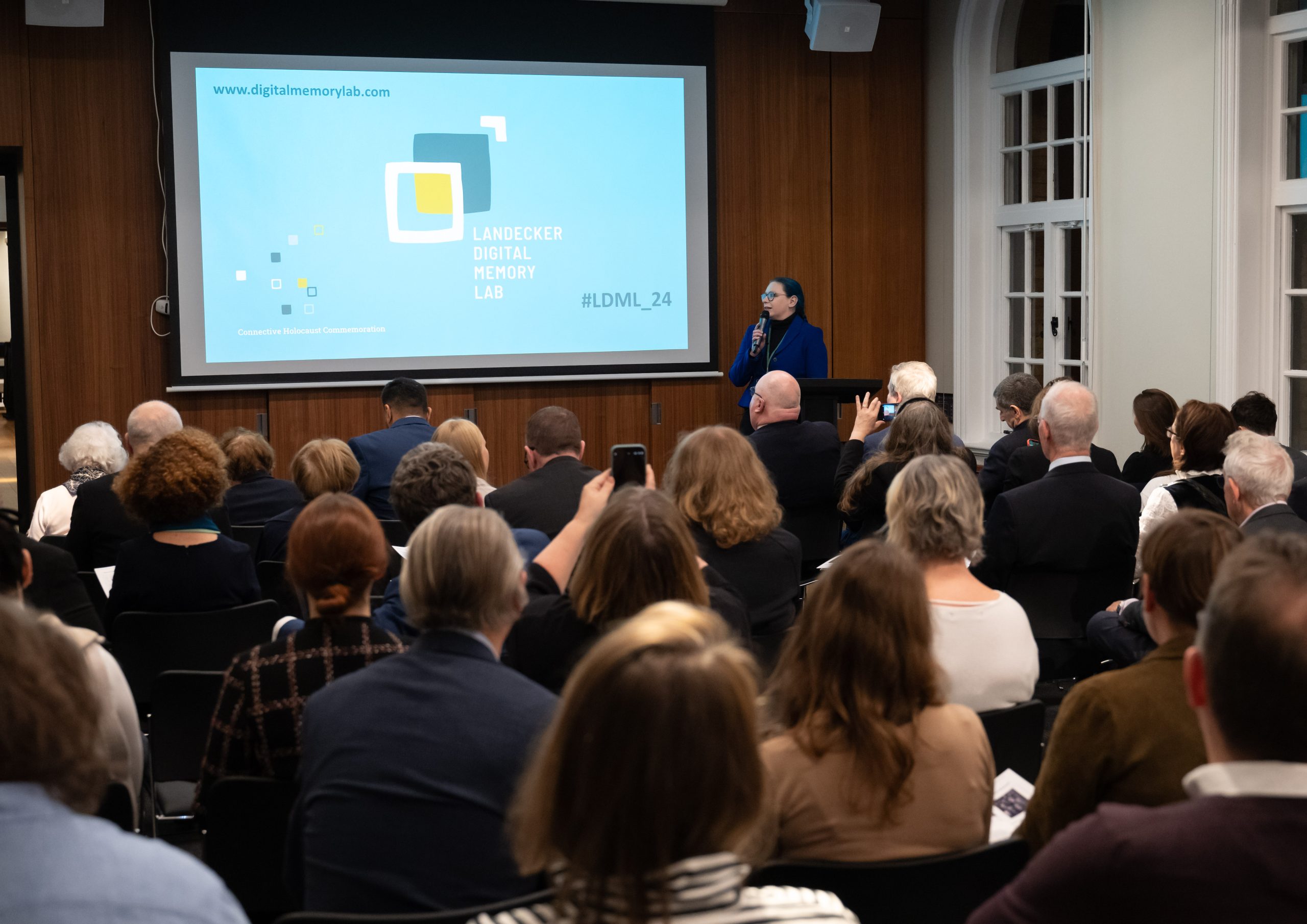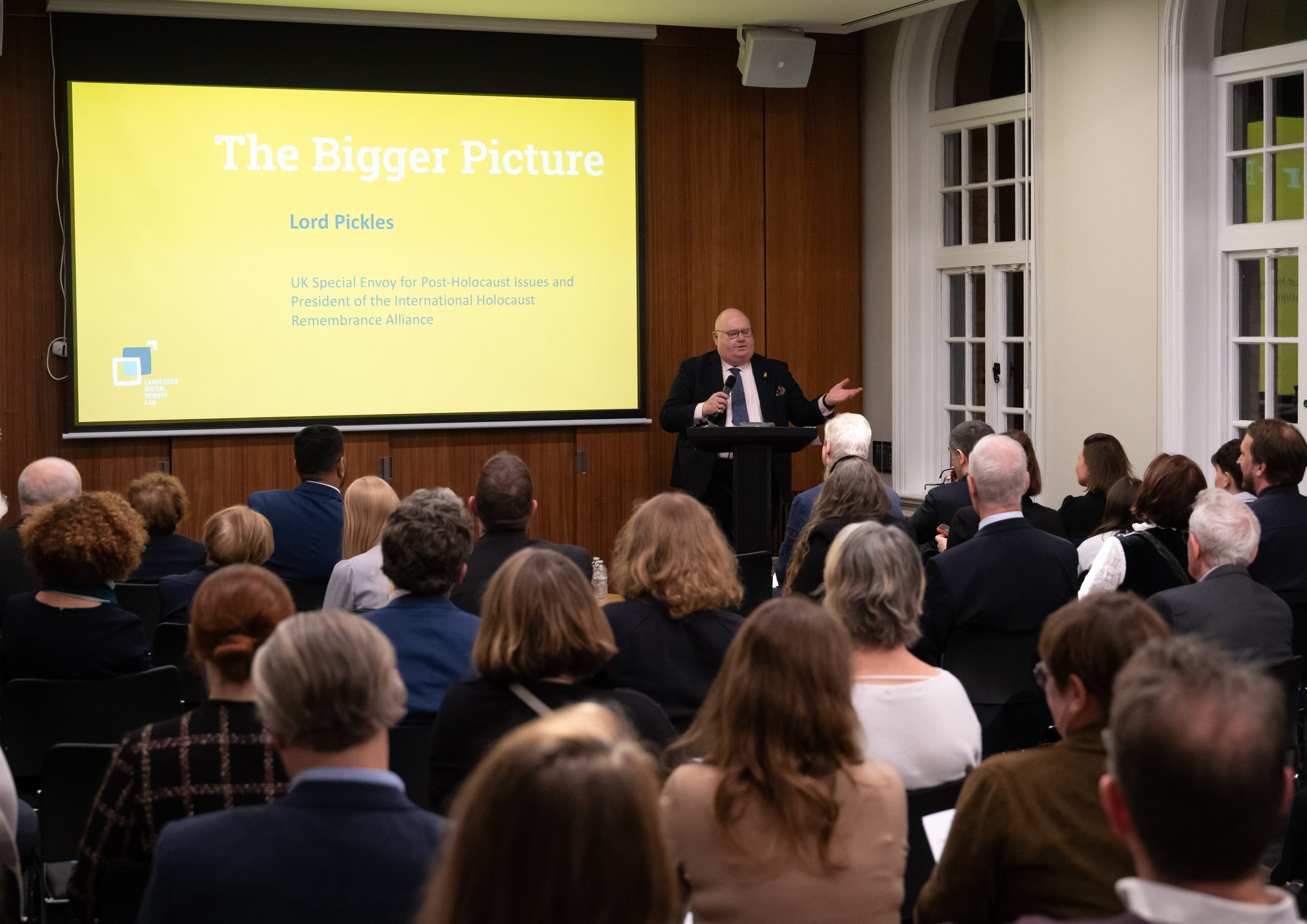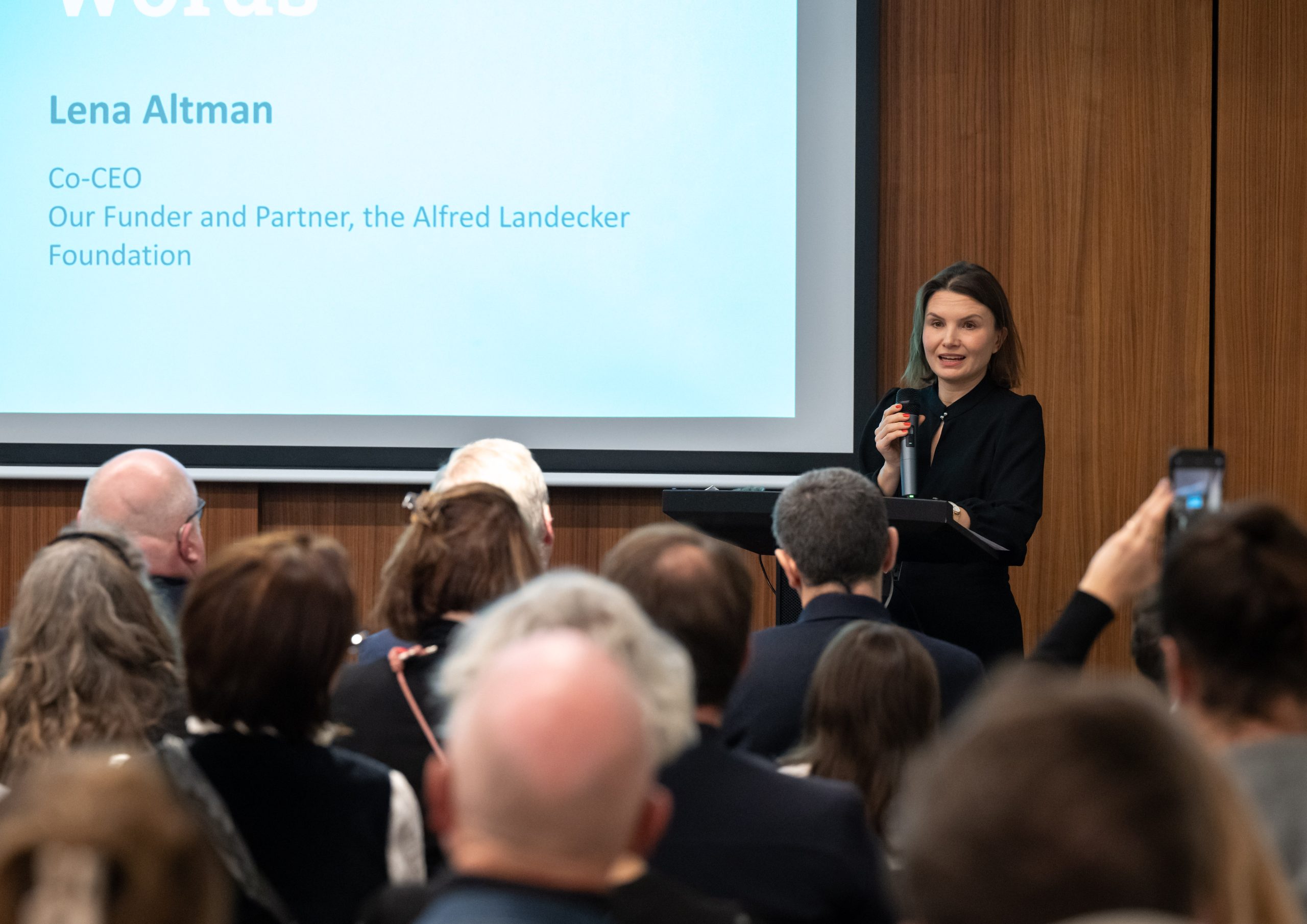Annual Report 2024-2025
Director’s Welcome
Welcome to the first annual report of the Landecker Digital Memory Lab. The establishment of the Lab was officially announced at a public lecture on 11 April 2024 at the Melbourne Holocaust Museum, which was a fitting location given the Lab’s focus on digital Holocaust memory as a global phenomenon.
On 3 June 2024, we met as a new team for the first time and looking back on our inaugural year it is clear we have achieved a lot in this short time. Whilst we cannot ignore, that like many Holocaust-related organisations, current geo-politics have posed challenging circumstances, despite this, the team has pressed forward with its many objectives. Indeed, the current climate has underpinned the urgency of our work: for nuanced research.
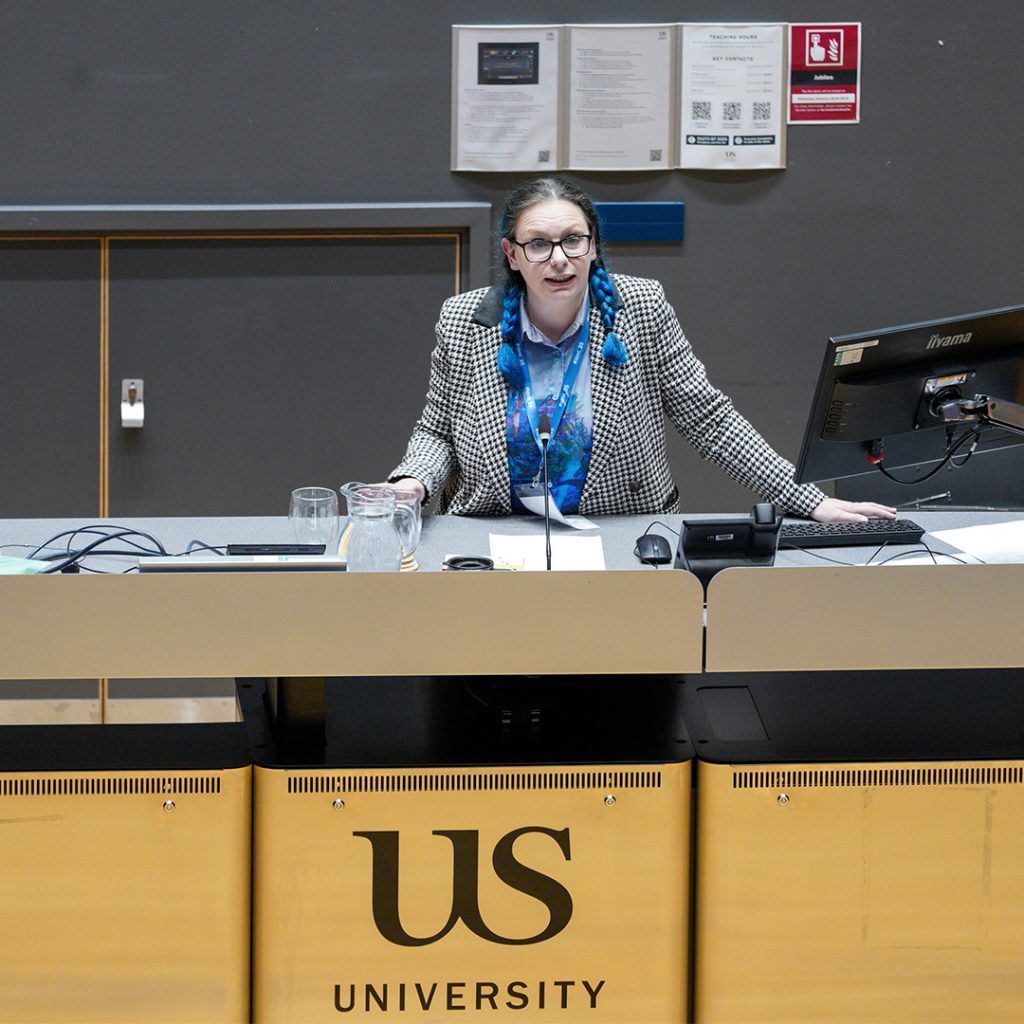
Core to our values are transparency, listening, learning and collaboration. The Landecker Digital Memory Lab is more than its seven ‘employees’ at the University of Sussex. It is a global community, and we take seriously the need to be attentive to the needs of stakeholders, project partners, and especially our interviewees and the participants of our activities.
Whilst all our work aims to be research-leading and research-informed, we fundamentally serve the disparate communities that shape digital Holocaust memory across the world, hoping to make their work more connective through our programme.
In our strategy documents, Year One was called our ‘Establishment Year’ – the 12 months in which we aimed to announce the Landecker Digital Memory Lab, to form a strong team, partnerships and collaborations, to create an online and offline presence, to connect with and to build networking and impact opportunities with our stakeholders: Holocaust heritage and education sectors, academics, the creative and tech industry, policymakers and funders.
We also launched some of our key initiatives, namely our publishing space, our international Expo event series, and alpha launched our flagship output – the Digital Memory Database.
In essence, the ‘Establishment Year’ has been about much more than simply becoming present and emerging as a new entity, as the details of this report evidence. What follows is testament to the hard work of the Lab team and our wider community, of collaboration in action, and the significance and impact the Lab’s work is already having.

Prof. Victoria Grace Richardson-Walden
The Identity of the Landecker Digital Memory
Mission Statement
‘To ensure the sustainability of global Holocaust memory in the digital age’
Work Strands
World-leading research
Living database-archive
Discussion publishing platform
Design sprints
International expos
Building capacities and literacies
Consultancy
Policy Engagement
What We Are and What We Are Not
The Landecker Digital Memory Lab is fundamentally concerned with producing world-leading research about digital Holocaust memory and affecting global change with this research. It seeks to create a more sustainable approach to using (and not using) digital media for the sake of Holocaust commemoration and education activities and build critical digital capacities and literacies across relevant sectors.
We are not…digitising Holocaust testimonies, it is not a digital Holocaust archive in itself, it is not a repository for general Holocaust research, and it is not a digital humanities exploration of Holocaust-era sources.
Our research object of study is digital Holocaust memory practice, which we recognise as a global phenomenon that is a complex entanglement of human and computational actancies (a word we use to distinguish from ‘actors’, which could inaccurately attribute a consciousness and/or decision-making powers to machines).
To be succinct – we are not here to digitise your testimony, we are here to research how you are digitising and digitalising the testimonies in your collection, and other digital work. Then we aim to use that research to better inform digital practice in the field of Holocaust memory.
Why Bother?
We still see a trend in Holocaust Studies and Holocaust memory practice to assume that digital media either must be adopted for innovation’s sake or to attract young people to museums (engaging with the ‘hype’ promoted by tech industries) or there are specific mediums which are ‘perilous’ such as social media or computer games, and focus is thus drawn to their risks.
Digital media in this latter context are often discussed in relation to mis- and disinformation, denial and distortion, and trivialisation as if these didn’t exist before the advent of emerging technologies. Similar, albeit medium-specific, claims are made as were once directed at Holocaust films and television programmes.
Both approaches are harmful to the perpetuation of Holocaust memory and stall nuanced, academic research in this field. Digital Holocaust Memory is a complex, socio-technical memoryscape which requires the same level of attentive, careful and deliberate study as historical sources, literature and other objects that have long interested humanities scholars. It also needs to be treated with the same level of expertise, time and care as primary materials are given in museums, archives and memorials.
Alongside this, our scoping research has identified that whilst organisations dedicated to commemorating the Holocaust are full of ‘digital imagination’, the sector is facing a ‘sustainability crisis’ because there is:
- A lack of basic technological infrastructure to support long-term, strategic digital engagement despite a desire to embed these media
- Increasing mainstream Holocaust distortion
- A lack of training programmes focused on enhancing digital know-how in the Holocaust memory and education sectors
Thus, the work of the Landecker Digital Memory Lab is urgent and timely, offering space to focus at minute and macro scales at this much overlooked, taken-for-granted, and misunderstood characteristic of contemporary Holocaust memory.
“Holocaust memory is fundamentally digital today, whether we like it or not.”
It is time we focused more on what defines the digitalness of digital Holocaust memory, doing so helps us understand how it can be used to do specifically digital things.
Who Are We?
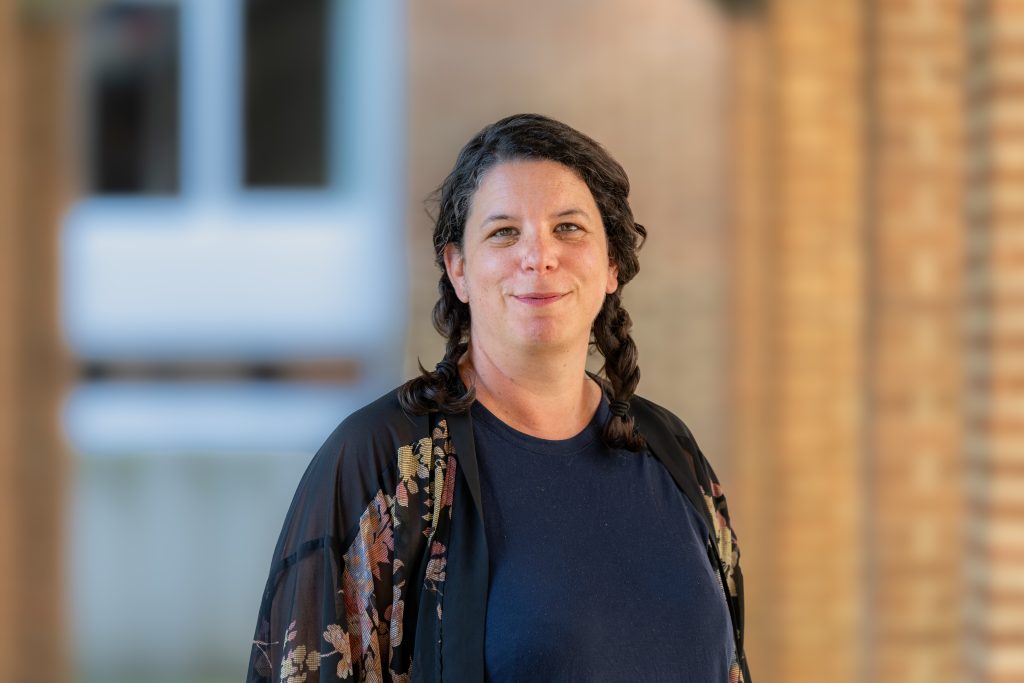
Philippa Murnaghan, Lab Manager
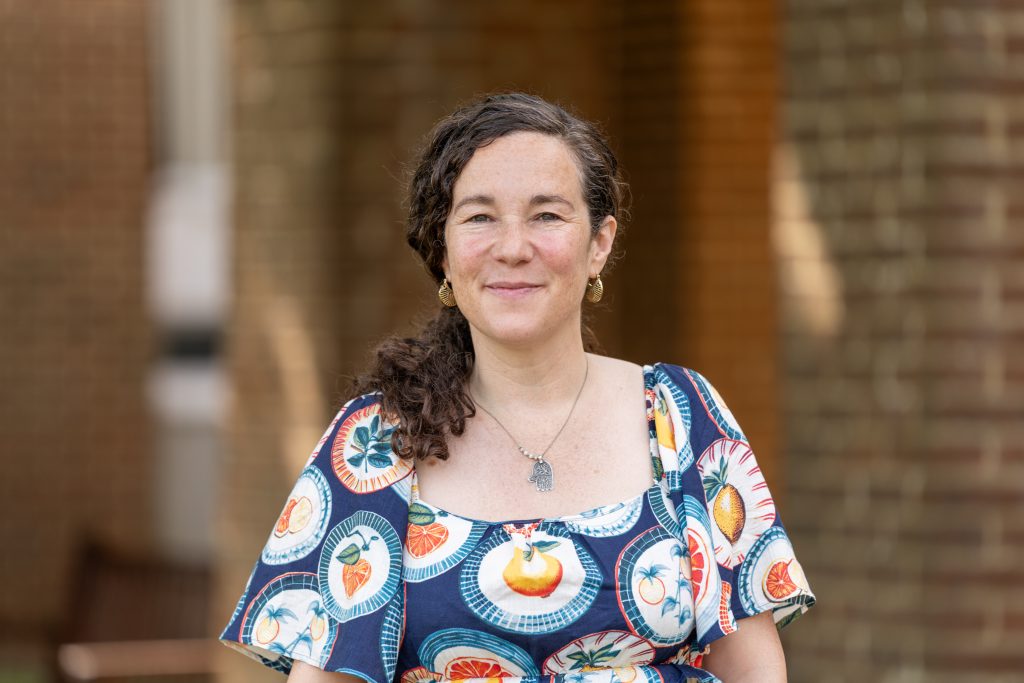
Mel Poluck, PR and Communications Manager
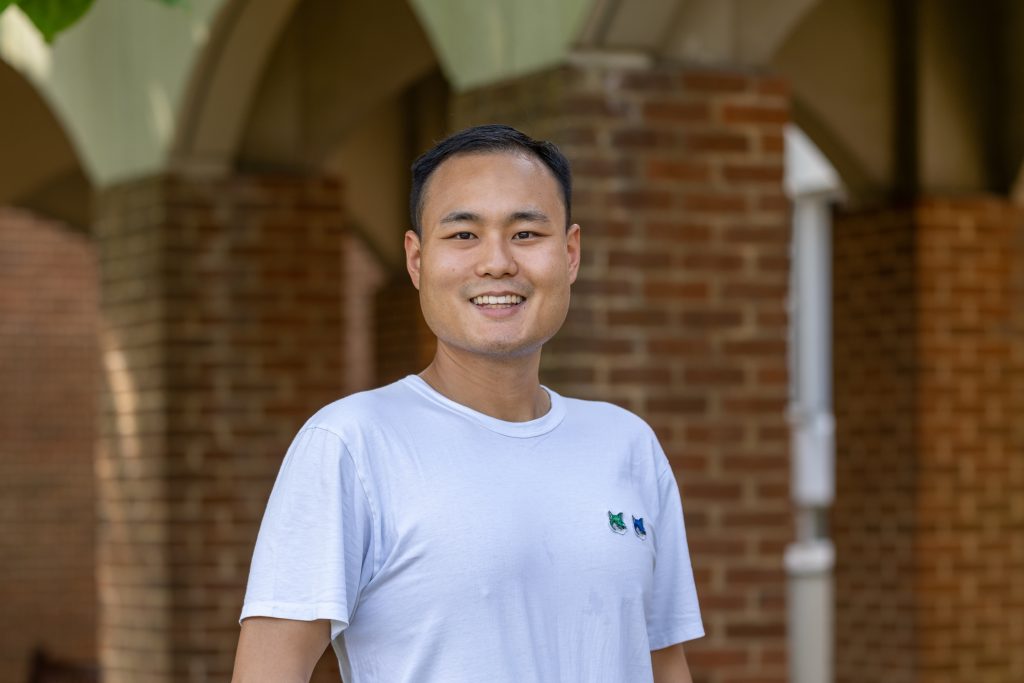
Steve Wang, Digital Media Specialist
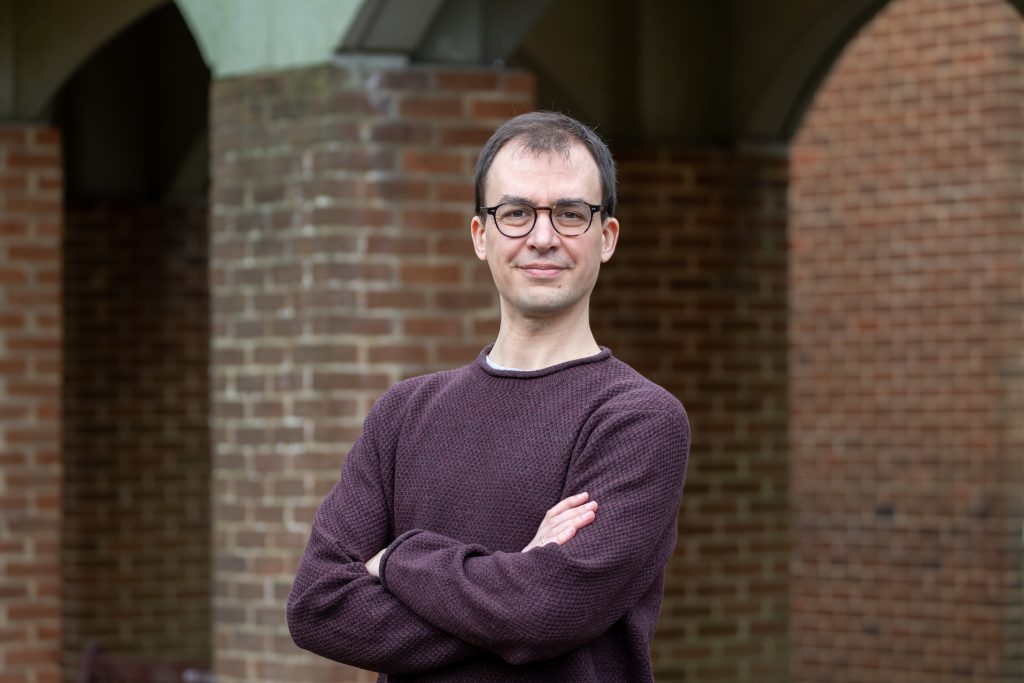
James Alvarez, Software Engineer
Core Activities
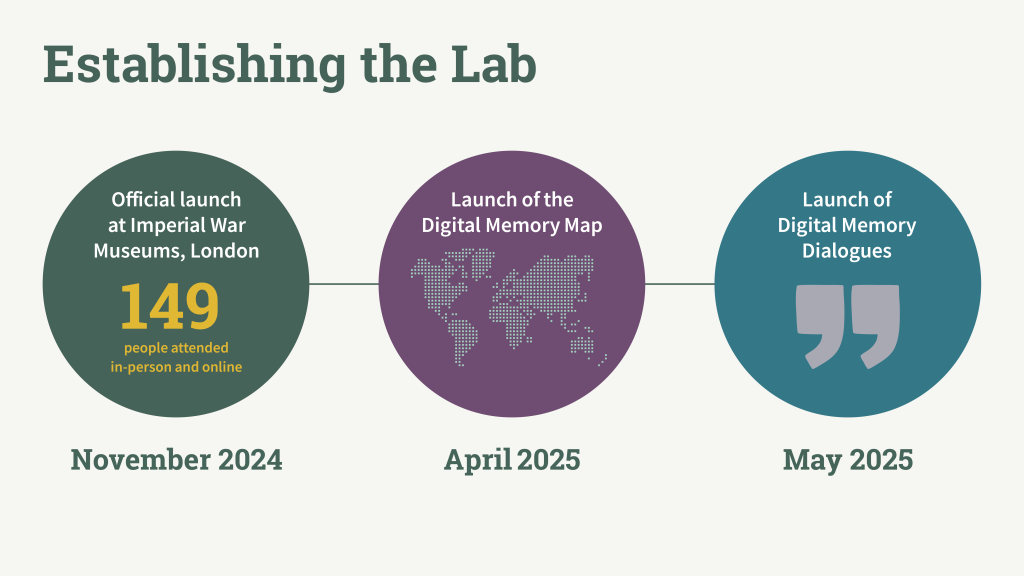
Our Official Launch Event
We held an official launch event at the Imperial War Museums, London on Monday 18th November 2024. 149 people attended in-person or online. Lena Altman, Co-CEO of our funder and key project partner, the Alfred Landecker Foundation, provided the welcome address. Then after the main presentation, Lord Pickles (UK Special Envoy for Post-Holocaust Issues and then-President of the International Holocaust Remembrance Alliance) addressed the bigger picture in which the Lab’s work sits. He was followed by Professor Michael Luck (Deputy Vice-Chancellor and Pro-Vost) and Professor Cornel Sandvoss (Executive Dean of the Faculty of Media, Arts and Humanities) both offering the view from the University of Sussex, addressing how the Lab’s work complements the university’s wider values and emphasising the importance of humanities research. Lord Khan of Burnley, Parliamentary Under-Secretary of State, Minister of Housing, Communities and Local Government presented the closing remarks.
“How do we encourage a digital generation to engage with the murder of millions of Jews and apply lessons from this past to contemporary challenges? The Landecker Digital Memory Lab addresses this head-on.”
–Lena Altman, Co-CEO, Alfred Landecker Foundation
The audience was a mix of academics, representatives of UK-based Holocaust organisations, staff from the Alfred Landecker Foundation and the University of Sussex, creative and tech professionals, and Holocaust survivors and their relatives. Beyond the formalities, those attending in-person had an exclusive view of our forthcoming policy guidance on AI and Holocaust education, opportunity to preview snippets of some of our walkthrough videos and received an introduction to the Imperial War Museum’s Holocaust Galleries from lead curator Dr James Bulgin, before having time to explore the galleries.
Launch of Digital Memory Dialogues
Our online and open access publishing space Digital Memory Dialogues presents a new model for disseminating research and practice wedded to our values of collaboration, listening and recognising the entanglement of humans and computers in the creation of digital Holocaust memory.
Each Dialogue – we aim to publish three every year – starts with a provocation written by one of our international editorial board or a guest editor. This is reviewed by our core Editorial Team before being circulated to a select group of respondents, each from a different field/sector, but whose expertise speak to the theme of the provocation.
The respondents commit to peer-reviewing each other’s contributions, following our framework for peer-review, then edit their pieces before coming together for a live, online discussion, where their work and the whole dialogue to-date is opened up to a wider public for critique and expansion.
The first provocation written by our Lab Director asked: Can the Holocaust be made playable in computer games? Published in May 2025, it invited games designer Jörg Friedrich, scholars Dr Tabea Widmann and Dr Alina Bothe, and colleagues from the United States Holocaust Memorial Museum to respond.
Digital Memory Database
Due to be launched in January 2026, our ‘living database-archive’ has always been designated as our flagship output, from which all later research and impact endeavours will grow. Appropriately, it has been a major part of our workflow in the first year.
Almost immediately in June-July 2024, our software engineer James Alvarez ran three design workshops with the team to develop the initial infrastructure and wireframes. Whilst our digital media specialist Steve Wang was busy preparing the audio-visual assets already collected during the scoping research before the Lab’s launch.
In the autumn, we welcomed visiting senior research fellow, Dr Alex Sessa to support us with building a hierarchy for our indexing. Then the research team set about following the notion of ‘immanent indexing’ (Presner 2024) so that we could test the discoverability of content through our user-testing programme. We’ve also employed freelance support with transcription and worked closely with our design contractors at Chimney Designs, on getting the look and feel of the site right.
In keeping with our commitment to work out in the open, we also made public our Digital Holocaust Memory Map. Initially designed to track our scoping research to inform the Digital Memory Database, it now also offers researchers and practitioners anywhere access – at least at surface level – to the global picture of digital Holocaust memory. More depth will be available through our database.
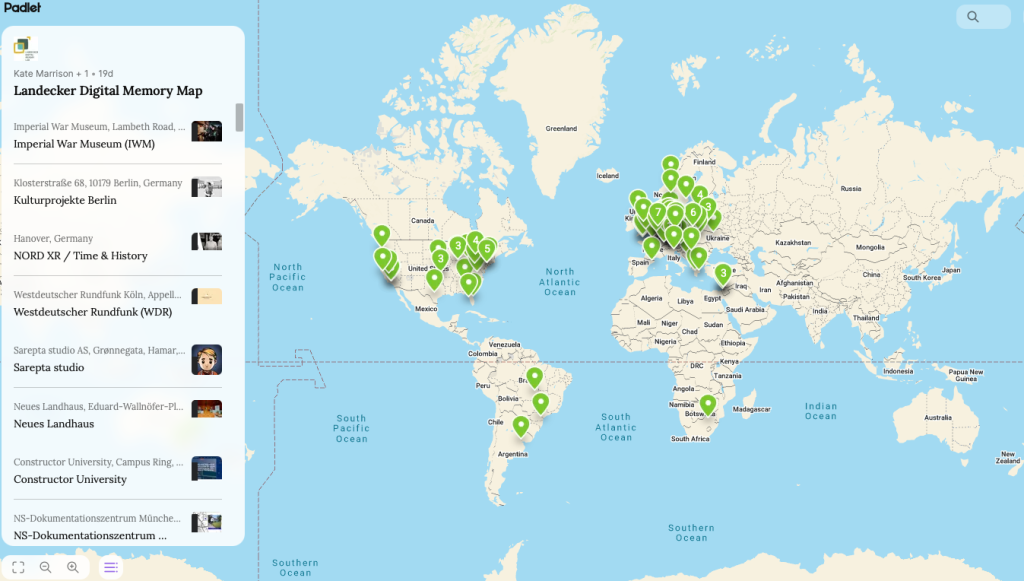
From the map, our research team were then able to compile basic database details for more than 350 digital Holocaust memory projects (work that is ongoing), and this initiated a Quality Assurance workflow of checking details with institutions, which in turn has informed us about more projects.
Ethics and Quality Assurance are absolutely key to our work, alongside checking database information. We also offer all interviewees the right to refusal regarding the use of their interviews either entirely or in terms of being made semi-public on the database site.
Following our values of listening and collaboration, creating an iterative user-testing programme was essential to developing the database. This started in early 2025 with a work-in-progress session with colleagues in the Sussex Digital Humanities Lab, who we knew had extensive expertise in archive and database building, and data collection, digitisation, and visualisation. From here, we then ran an alpha-testing session with the Digital Collective Memory platform’s professional community, during which we gave participants user profiles and journeys through which to explore the site (attendees were all from our key user groups: Holocaust heritage; academia; creative and tech professionals).
The feedback from this informed the next stage of our development, prepared us for our beta-testing stage (which marked the beginning of Project Year Two), and will later be shared through blogs, and academic publications.
Whilst the Expo was the first event of Project Year Two (so we will cover this in next year’s report), it is important to recognise that the behind-the-scenes work for this started within months of the Lab’s existence.
From the work of our Lab Manager, Philippa Murnaghan in securing venues, arranging catering, cleaning, risk assessments, and security, as well as coordinating guests’ accommodation and travel to tech consultations, recces, and equipment hiring and testing by Steve Wang, and the reviewing of applications, programme and content coordination by the research team, to planning the communications package by our PR and Comms Manager Mel Poluck, the Expo was a mammoth coordination project.
With more than 120 people registered simply through presenters, we were barely able to open the event to a wider audience and exceeded our target of 150 registered participants. Given the ambitious scale of this event, which tried to blend the creative and tech industry ‘expo’ format with an academic conference, we decided for this first year to cap our numbers close to our target.
The interest received though is food for thought and gives us the challenge of how to include more participants and attendees in future.
Consultancy/Advisory Service
We also launched our free consultancy/advisory service this year and have had ad-hoc engagements with several creative teams, Holocaust organisations and funders over the past few months about their projects.
Significantly, we are reviewing applications for the New Media grant of the Claims Conference and work closely with their team to identify grantees that might benefit from our support and/or collaboration.
Now we have a good sense of how we can help different stakeholders, next year we are looking to present a more specific offering including:
- 1-2-1 or team advice sessions (one-off or a series of informal conversations about a project, based on a coaching model)
- Bespoke team training
- Support developing and implementing digital strategies
- Support developing funding bids for digital projects
- Intermediary service (helping to communicate across disciplines/sectors involved in interdisciplinary projects)
- Support with planning, implementing and analysing impact studies
- Funders’ forum (a space for funders looking to explore more sustainable and strategic approaches to supporting digital Holocaust memory projects)
Research Culture
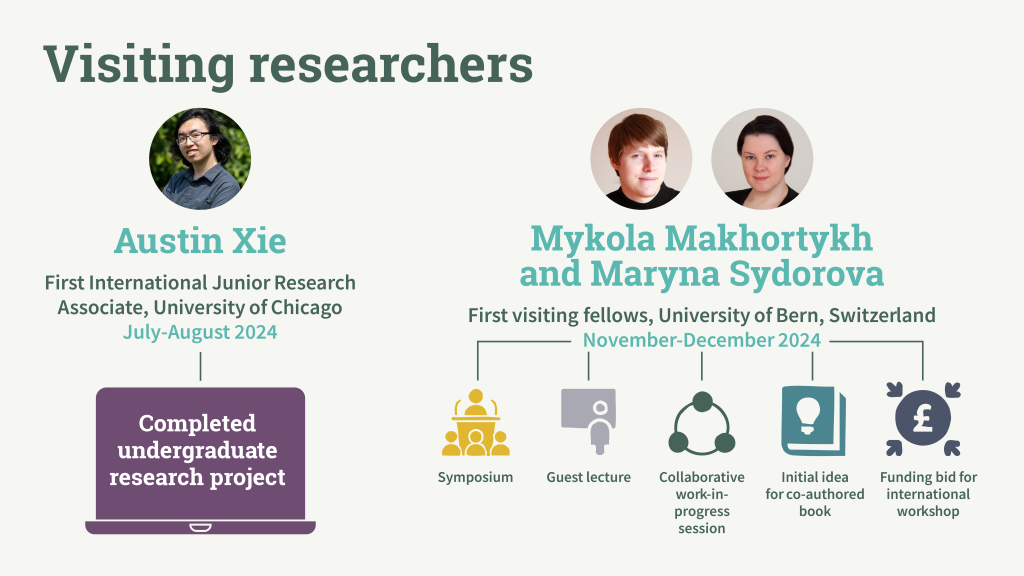
The Lab is committed to not only communicating our research outwards but inviting visiting scholars to collaborate with us. Over the summer months of 2024, we welcomed Austin Xie, an undergraduate from the University of Chicago, who developed an international junior research associate project thinking through the ethics of designing a Holocaust computer game. You can read his two-part blog series here and here.
In November and December, we were joined by our first academic visiting fellows: Dr. Mykola Makhortykh and Maryna Sydrova from the University of Bern. During their stay, we hosted an unconference-style symposium taking influence from the ‘Falmer Method’ created here at our University of Sussex Falmer campus (hence the name). The day focused on ‘AI and the Production of Historical Knowledge’ in the Sussex Digital Humanities Lab which brought together a diverse range of scholarly disciplines from biology and computer sciences through media studies and history. They also contributed to our Media, Culture and Communication research update session, and presented a guest seminar to the Sussex AI community – one of our Centres of Excellence.
Whilst not presenting, Mykola and Maryna joined the team for some intensive collaboration work in which we explored some of their data sets together, began developing ideas for a co-edited book, and drafted a funding proposal for an international workshop to create working papers on the use of AI for Holocaust memory.
Spotlight on Policy Engagement
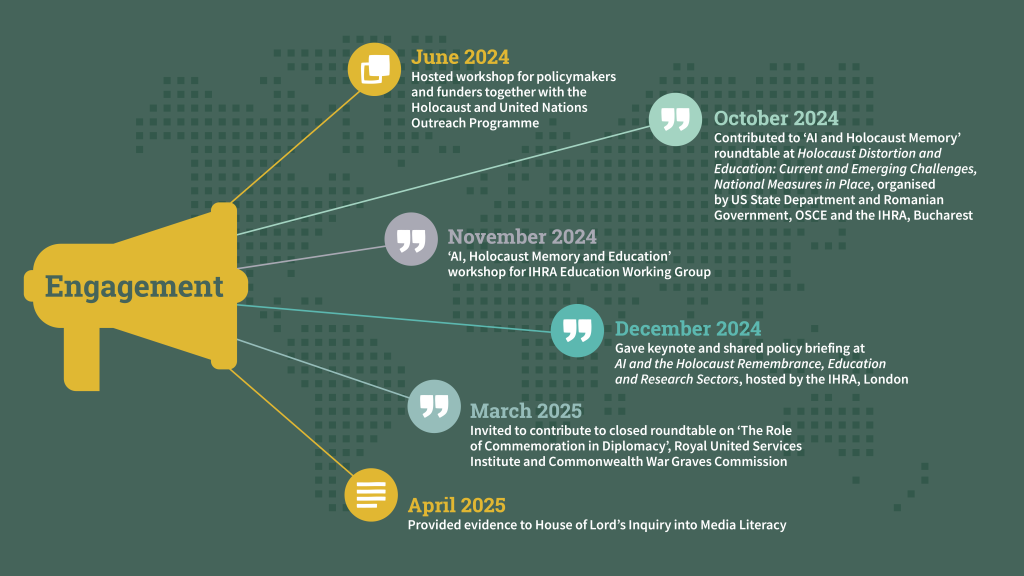
One of our project KPIs is to make ‘at least 10 policy engagements’ across the five years of the project. In our first year, we already achieved this goal and will now be focusing our attention on making these engagements matter by following and enhancing the impact narrative of this work. As our research has demonstrated, one of the key barriers Holocaust organisations believe they face with moving forward with strategic and long-term digital development is a lack of appropriate funding and policy guidelines.
Highlights
- The workshop we hosted together with the United Nations and Holocaust Outreach Programme led to the publication of the United Nations working paper: Sustainable Digital Futures for Holocaust Memory and Education
- With the UK presidency of the IHRA coinciding with our launch year, we had multiple opportunities to engage with this transnational organisation, including participating in a roundtable in Bucharest on the invitation of the US State Department, through the IHRA education working group, and by offering the keynote and helping to shape the programme for the IHRA’s ‘AI in the Holocaust Remembrance, Education and Memorialisation Sectors’, at which we presented a policy briefing. Since presenting this briefing, we have received multiple opportunities to further talk about this topic, including invitations by the current IHRA Presidency delegate in Israel
- We have also built relationships with some key funding organisations, with whom we hope to continue engaging with through a series of ‘funders’ forums’ to help action our working paper recommendations
- We also contributed both written and content towards oral evidence for the House of Lord’s inquiry into Media Literacies through our Director’s role as a Board Member of the Media Education Association. This evidence was quoted more than 20 times in the final report
- Continuing our established relationship with the Commonwealth War Graves Commission, our Director was once again invited to a closed roundtable of experts, where she was able to offer digital expertise to diplomats, military professionals and other stakeholders concentrated with war commemoration
The Lab in Numbers
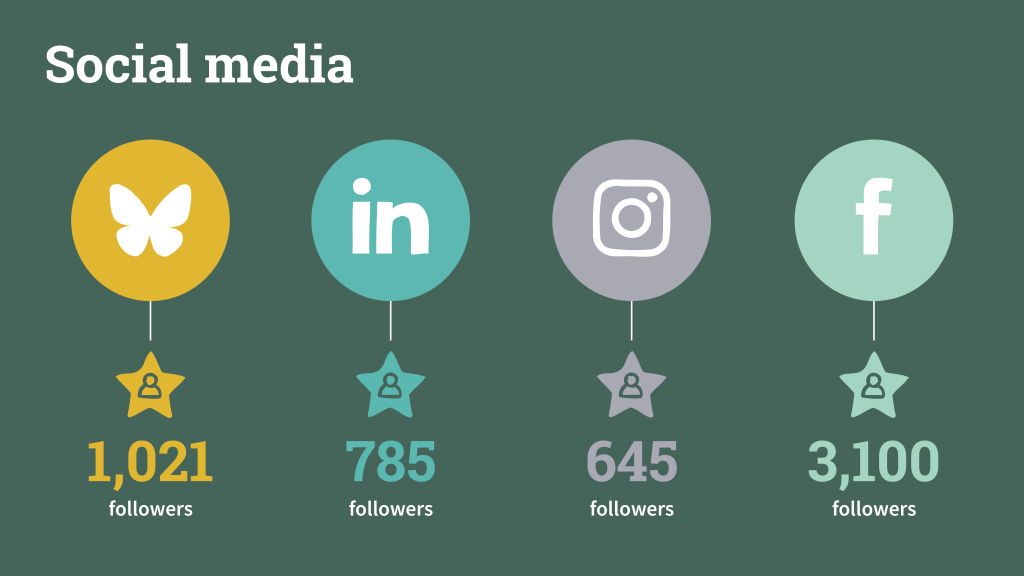
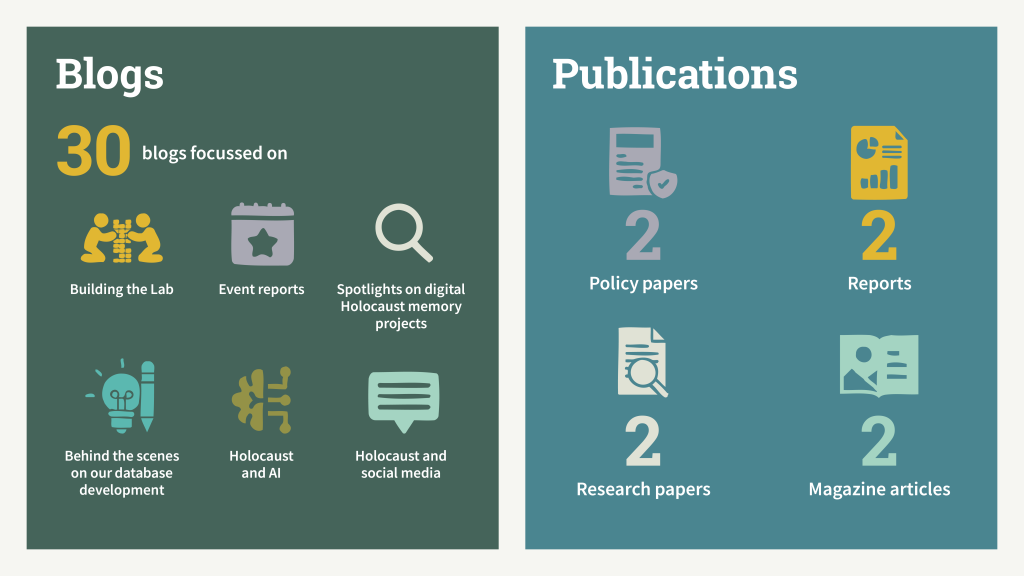
Still to Come
So, what’s next for the Lab?
Year Two is our ‘Transformation’ Year, in which our programme includes:
- Holding our inaugural Connective Holocaust Commemoration Expo
- Carrying out beta-testing on our Digital Memory Database, responding to this testing with a final round of major development work, then taking the database to a series of expert user sessions to (a) develop authentic use cases and (b) offer early access opportunities
- Conducting the first global survey of digital Holocaust memory practice
- Creating user guides and a programme of onboarding/user engagement activities to evolve a community around our database
- Establishing a series of ‘funders’ forums’ to help funders and policymakers to explore ways to provide more sustainable support for digital Holocaust memory
- Holding our first innovation initiative in Novi Sad, Serbia with our project partners Terraforming
- Carrying out the next stage of intense fieldwork
- Continuing to grow our engagement with our key stakeholder groups: Holocaust heritage, memory and education organisations; tech and creative professionals; academics; funders and policymakers
- Commencing work on our first set of guidelines and frameworks, including on digital strategy, AI development, and games
- Continuing to develop research outputs based on our ongoing findings
Here is a list of articles published in the year 2024-2025.
